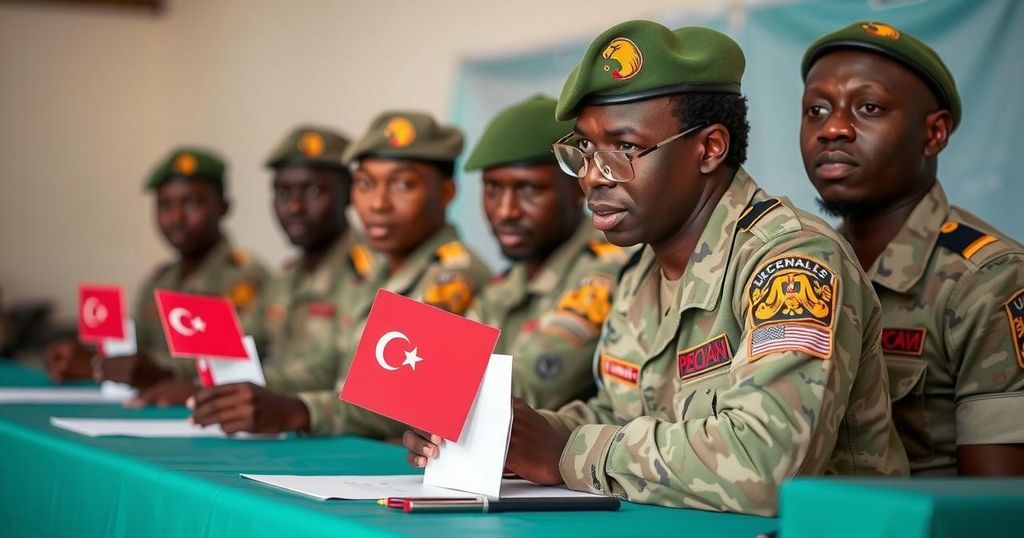Chad Seeks Military Protection for Elections Amid Rising Violence

Chad’s electoral commission seeks military protection for election officials due to rising violence ahead of December 29 elections. Ongoing unrest involves opposition groups obstructing ruling party rallies, raising concerns about potential armed conflict. Over 8.3 million voters are registered, but many opposition factions criticize the electoral legitimacy, contending it serves to entrench existing power structures.
Chad’s electoral commission, known as the National Election Management Agency (ANGE), has formally requested military protection for election officials and candidates due to an alarming increase in violence as the country prepares for elections on December 29. Reports indicate that opposition supporters have resorted to physical confrontations, employing clubs and iron bars to obstruct the ruling Patriotic Salvation Movement (MPS) from conducting campaign activities across various cities. The electoral environment has been marred by ongoing unrest, with ANGE warning that the situation could escalate into armed conflict if military support is not provided.
With more than 8.3 million registered voters out of an estimated 18 million citizens, Chad’s upcoming parliamentary, local council, and regional elections signify the conclusion of a three-year transitional period that began following the death of long-time leader Idriss Deby Itno in April 2021. In this electoral cycle, nearly 1,300 candidates from approximately 180 political parties are set to participate in the parliamentary elections, alongside thousands competing in local governance. Over 1,000 election observers have been accredited in anticipation of the polls.
However, a coalition of over 75 opposition parties and civil society organizations has dismissed the legitimacy of the upcoming elections, labeling them a “masquerade.” They claim that President Mahamat Idriss Deby Itno and the MPS intend to leverage the electoral process to solidify their hold on power. Incidents of violence have been reported, with opposition factions using blunt instruments to disrupt MPS campaign events in major urban areas including Ndjamena and Moundou.
Further complicating matters, Avocksouma Djona, president of the Party of Democrats, has voiced concerns regarding the impartiality of the electoral process, asserting that the election management body is entirely under Deby’s influence. Djona has called for a postponement of the elections, citing that Deby’s control extends to Chad’s constitutional court, where he allegedly influences outcomes in favor of his party. Historically, Deby has appointed officials to key electoral institutions and served as the transitional leader since his father’s death, promising a return to civilian rule that has since faced skepticism.
Chad’s political landscape has experienced significant turbulence following the death of President Idriss Deby Itno in April 2021, which resulted in the establishment of a transitional government led by his son, Mahamat Idriss Deby. This transition, originally promised to last 18 months, has been extended, leading to increased dissent among opposition parties and civil society. The current climate ahead of the upcoming elections is characterized by widespread fears of violence, as opposition groups allege that the ruling party will manipulate the electoral process to maintain power. The request for military protection underscores the gravity of the situation and the potential for civil unrest as the election date approaches.
The situation in Chad is increasingly precarious as the December 29 elections draw near, with requests for military assistance highlighting the escalating violence surrounding the electoral process. While the electoral commission prepares for a significant turnout, widespread skepticism remains regarding the fairness of the elections under the current regime. Opposition factions continue to challenge the integrity of the electoral process, signaling a potential crisis in governance should disputes escalate further amidst calls for improved democratic practices.
Original Source: www.voanews.com








